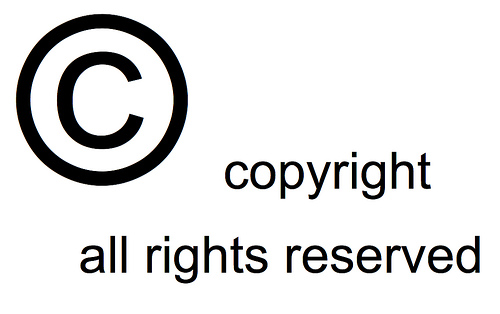College is the key that unlocks endless possibilities for students:
As the college years progress, you may suddenly become an originator with your craft. So much so, you may even begin to gain recognition or even profit off of your skills.

That’s all fine and well, but what happens when other people start stealing your work?
Ever heard of copyright? Not sure how it works?
Copyrighting
Copyrighting goes as far back as 1790 when the the first Federal copyright act, Copyright Act of 1790, was passed in the United States.
The act was set in stone in order to encourage learning.
This gave people the right to publish and distribute publications such as maps and books while claiming ownership.
It basically protects any of your original work—poetry, novels, lyrics, songs, software, etc. However, if you so happen to make a discovery or invent something, copyrighting isn’t going to workout for you; you should probably look into patenting your work.
How to Copyright
You may have heard of the “poor man’s copyright.” If not, this is simply mailing your work to yourself and keeping it sealed. This method works if you’re living on a budget.
But if you’re really serious about your craft, you may want to do it this way:
In order to copyright your original work, you must first register at the United States Copyright Office. You’ll also have to pay a filing fee—$35 registering online or $45 if you register with a paper application.
Remember, you must send in the application, the work and the fee at the same time so that everything is processed together. If not, this method won’t work.
After your material has been copyrighted, it is yours from the moment you create it (whether it’s registered or not) until 70 years after you die.


